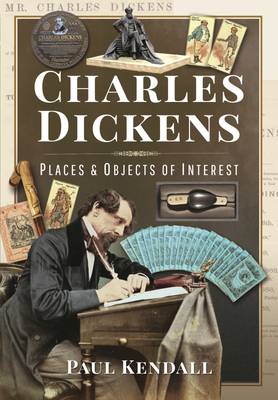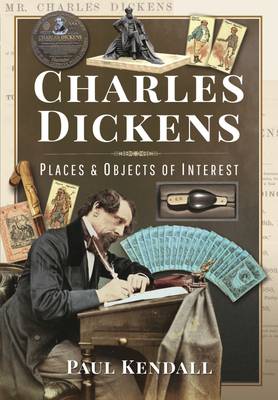
- Afhalen na 1 uur in een winkel met voorraad
- Gratis thuislevering in België vanaf € 30
- Ruim aanbod met 7 miljoen producten
- Afhalen na 1 uur in een winkel met voorraad
- Gratis thuislevering in België vanaf € 30
- Ruim aanbod met 7 miljoen producten
Zoeken
Omschrijving
Few writers have had a greater impact upon British society than Charles Dickens. His stories, and, in particular, his many memorable characters, highlighted the life of the forgotten poor and disadvantaged within society at a time when Britain was the leading economic and political power in the world.
Dickens' portrayal of the poor, such as Oliver Twist daring to ask for more food in the parish workhouse, and Bob Cratchit struggling to provide for his family at Christmas, roused much sympathy and an understanding of the poor and the conditions in which they lived. This led to many people founding orphanages, establishing schools to educate the underprivileged, or to set up hospitals for those who could not afford medical treatment - one such was Great Ormond Street Children's Hospital where one of its wards was named after the great writer.
Little wonder, then, that his legacy can be found across the UK. From the buildings where he lived, the inns and hotels he frequented, the streets and towns which formed the backdrop to his novels and short stories, to the places where he gave readings or performed his own amateur dramatic productions to raise funds for his philanthropic causes. Dickensian memorabilia also abound, including his original manuscripts to his famous works and letters to his wife.
Many of these have been woven in a single volume which transports the reader magically through stories and images into the Dickensian world of Victorian Britain.
Dickens' portrayal of the poor, such as Oliver Twist daring to ask for more food in the parish workhouse, and Bob Cratchit struggling to provide for his family at Christmas, roused much sympathy and an understanding of the poor and the conditions in which they lived. This led to many people founding orphanages, establishing schools to educate the underprivileged, or to set up hospitals for those who could not afford medical treatment - one such was Great Ormond Street Children's Hospital where one of its wards was named after the great writer.
Little wonder, then, that his legacy can be found across the UK. From the buildings where he lived, the inns and hotels he frequented, the streets and towns which formed the backdrop to his novels and short stories, to the places where he gave readings or performed his own amateur dramatic productions to raise funds for his philanthropic causes. Dickensian memorabilia also abound, including his original manuscripts to his famous works and letters to his wife.
Many of these have been woven in a single volume which transports the reader magically through stories and images into the Dickensian world of Victorian Britain.
Specificaties
Betrokkenen
- Auteur(s):
- Uitgeverij:
Inhoud
- Aantal bladzijden:
- 312
- Taal:
- Engels
Eigenschappen
- Productcode (EAN):
- 9781399091367
- Verschijningsdatum:
- 12/01/2022
- Uitvoering:
- Hardcover
- Formaat:
- Genaaid
- Afmetingen:
- 178 mm x 248 mm
- Gewicht:
- 861 g

Alleen bij Standaard Boekhandel
+ 69 punten op je klantenkaart van Standaard Boekhandel
Beoordelingen
We publiceren alleen reviews die voldoen aan de voorwaarden voor reviews. Bekijk onze voorwaarden voor reviews.











